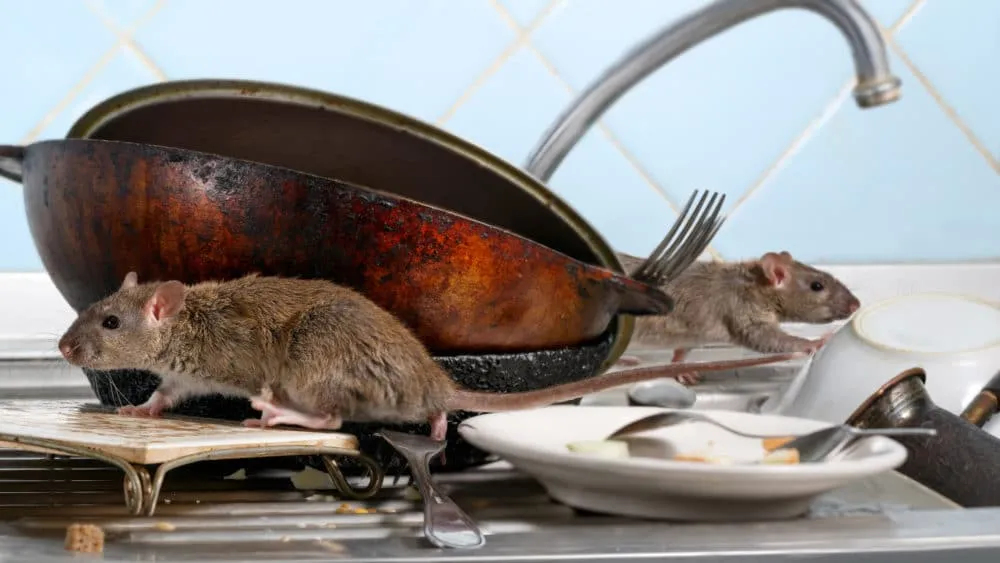Rats are a nuisance- and they’re terrifying to boot. Unfortunately, if you have a pack rat infestation, you may not even know you have a problem. What does it look like and how can you prevent it from ever happening to you?
Identifying An Infestation
What are pack rats ? It turns out, they’re pretty easy animals to spot. It’s a common name for what’s more scientifically known as White-Throated Wood Rats, and they’re typically about 12 to 15 inches long. They’re notable for their bushy tails and big ears, as well as grey or red fur with white patches on their feet and underbelly. Since they need to keep their teeth continually sharp, these rodents can usually be found chewing on something- whether it’s your electrical cables or your garden shrubbery. You might also notice their dens around your property- they can grow up to five feet in diameter, and are usually made of yard debris like twigs, grass, and sticks.
Pest Prevention
Learning how to control pack rats is difficult. Fortunately, the easiest way to control pack rats, of course, is to prevent them from ever coming into your home in the first place. Start by sealing all cracks in and around your home- even the ones under the door, or in the foundation. Make sure all of your outdoor vents, drains, and pipes are sealed, so that the pack rats can’t crawl in. If your doors and windows don’t properly close, adjust them to fit so that pack rats can’t find them in that way. Moreover, keep all of your bushes and shrubs trimmed away from your home, so that the rodents can’t crawl up to any open windows.
Getting Rid Of Them Once They’re There
But if pack rats are already inside your home, you’re probably going to want to get them out. While you can attempt to use at-home chemical removers or even traps, it’s much safer for both you and your loved ones if you call a respected pest and rodent control company like CAPE Pest Control.
At CAPE Pest Control, pack rat control is no joke- and we can get them out faster than any at-home chemical or trap remedies. It’s the safest option for both you and your family, and we can even help you take preventative measures to make sure that packrats don’t come back.

